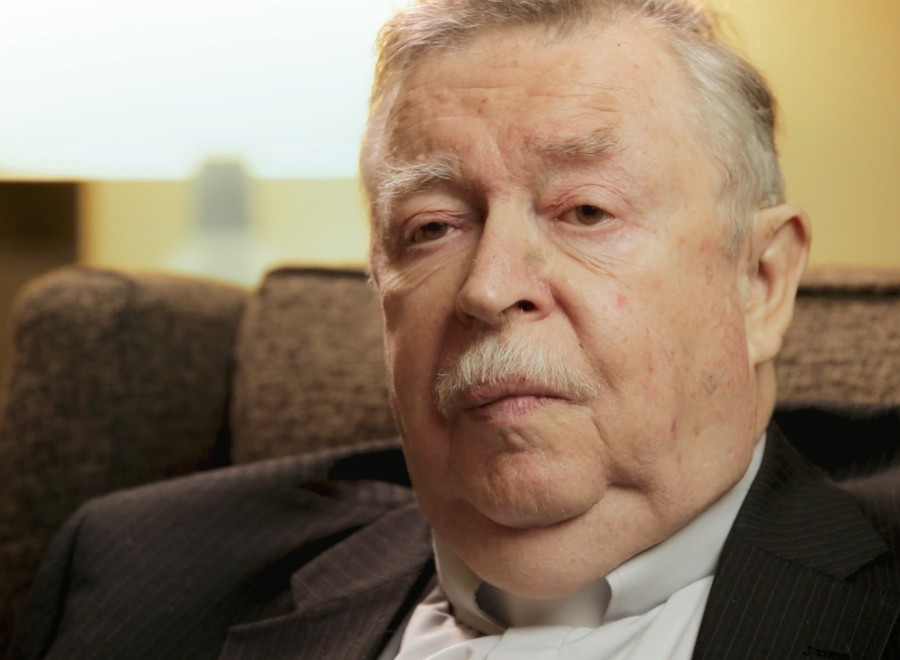An unsung hero has died. Rev. David Fearon died in his home at the beginning of January in Nanaimo, B.C., at the age of 84. He should be a household name for gay Christians and his contribution to history should be in every scriptural studies class at seminary.
At age 21, as a seminarian with The United Church of Canada, Fearon wrote a letter in secret, signing it only with “David S.” In it, Fearon challenged the Revised Standard Version translation committee on their introduction of the word “homosexual” into the Bible in 1946. In 1 Corinthians 6:10, the RSV translation committee had added homosexuals to the passage’s list of people who would not “inherit the kingdom of God.” The word had not been in any previous translation.
Fearon determined this was a mistranslation. His compelling five-page letter includes a study of the two Greek words that they had combined and translated as “homosexual,’ malakos and arsenokoites. Fearon concludes that this passage was to do with abuse of young male sex workers in Corinth in particular. The committee had not chosen the term homosexual out of malice, but likely because in the 1940s, the word was often used as a stand-in for pedophile. Beyond scripture and language studies, Fearon added that he is deeply concerned that the translation could be used as a “sacred weapon […] for injustice against a defenseless minority group.”
His letter worked. The archives show letters exchanged back and forth about the finer points of translation, and the passage was changed in the next publication in 1971. “Homosexual” was removed.
But in many ways, it was too late. The RSV with the error had already been used by other translators to pepper in “homosexual” into various passages where it had never been seen before. Homosexuality, even when no longer illegal nor considered a medical condition, had been moralized and used as a political wedge to garner votes. The “sacred weapon” that Fearon feared was now being waved around recklessly.
Recently, Fearon joined the charge to undo the perception of a non-affirming Bible. Author Kathy Baldock, writing a forthcoming book about the mistranslation, found Fearon. He jumped at the chance to help, being interviewed, delivering talks to standing ovations. He is also in the anticipated documentary 1946: The Mistranslation that Shifted Culture, where he said he now has a “true feeling of a second calling.” He used to think he “was called to pastoral ministry in spite of being gay.” Through his work with Baldock in his 80s, he said he now felt “that I was called to ministry because I was gay.”
Fearon had a partner, but publicly, they were “roommates.” He remained closeted nearly all of his life. It was not until his late 70s or early 80s that he came out, at a meeting of “Reaching ‘Out,’” a meet-up group for 2SLGBTQIA+ folks and allies. Janet Delgatty was there, a PFLAG leader at the time. She tears up remembering what Fearon shared, saying, “it was magic.” She saw his “relief” at being open publicly for the first time.
Fearon, a curious, gentle, studious, musical, and compassionate gay man, the son of an iceman and a teacher, will not get to see the release of the book and the documentary about 1946 that he played such a large part in. Nevertheless, his legacy will live on in these works, and, in the pages of your more-accurately translated Bible.
***
Alison Starks writes in Edmonton.














